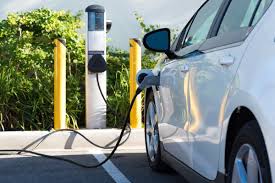- 0172-2663382-28
- peda.ec@gmail.com

The Energy consumption of the transport sector accounts for 18% of total energy consumption in India. This translates to an estimated 94 million tonnes of oil equivalent (MTOE) energy. If India were to follow the current trends of energy consumption, it would require an estimated 200 MTOE of energy supply annually, by the year 2030 to meet the demand of this sector. At the moment, this demand is being met mostly through imported crude oil, which therefore makes this sector vulnerable to the volatile International crude oil prices. Moreover, the sector also contributes an estimated 142 Million Tonnes of CO2 emissions annually, out of which 123 million tonnes is contributed by the road transport segment alone.
Keeping in view the climate change commitments made by Government of India during the COP21 Summit held at Paris to reduce emission intensity by 33- 35% by 2030 from 2005 levels, it is pertinent to introduce alternative means in the transport sector which can be coupled with India’s rapid economic growth, rising urbanization, travel demand and country’s energy security. Electric mobility presents a viable alternative in addressing these challenges, when packaged with innovative pricing solutions, appropriate technology and support infrastructure and thus, has been on the radar of the Government of India.
Further, Electric mobility will contribute to balancing energy demand, energy storage and environmental sustainability. Electric vehicles could help diversify the energy needed to move people and goods thanks to their reliance on the wide mix of primary energy sources used in power generation, greatly improving energy security. Thanks to their storage capacity, they could help support the uptake of clean electricity, enabling greater use of variable renewable in electricity production. If coupled with the decarburization of the power sector, electric vehicles would also provide major contributions to keep the world on track to meet its shared climate goals.
E-mobility is bound to play a pivotal role in enabling the country to meet its ambitious International commitments on climate change with regard to its Nationally Determined Contributions (NDCs). The government of India (GOI) has undertaken several initiatives to promote e-mobility in the country. India is also a member of EV30@30 campaign being implemented under the EV Initiative of Clean Energy Ministerial framework (CEM). The campaign has a target of at least 30 percent new electric vehicle sales by 2030. However, the availability of adequate Charging Infrastructure is one of the key requirements for accelerating the adoption of electric vehicles in India. In this regard, Ministry of Power has issued “Charging Infrastructure for Electric Vehicles – Guidelines and Standards” – on 14th December, 2018 and revised on 1st October, 2019 mentioning the roles and responsibilities of various stakeholders at Central & State level, for expediting the development of public EV charging infrastructure across the country.